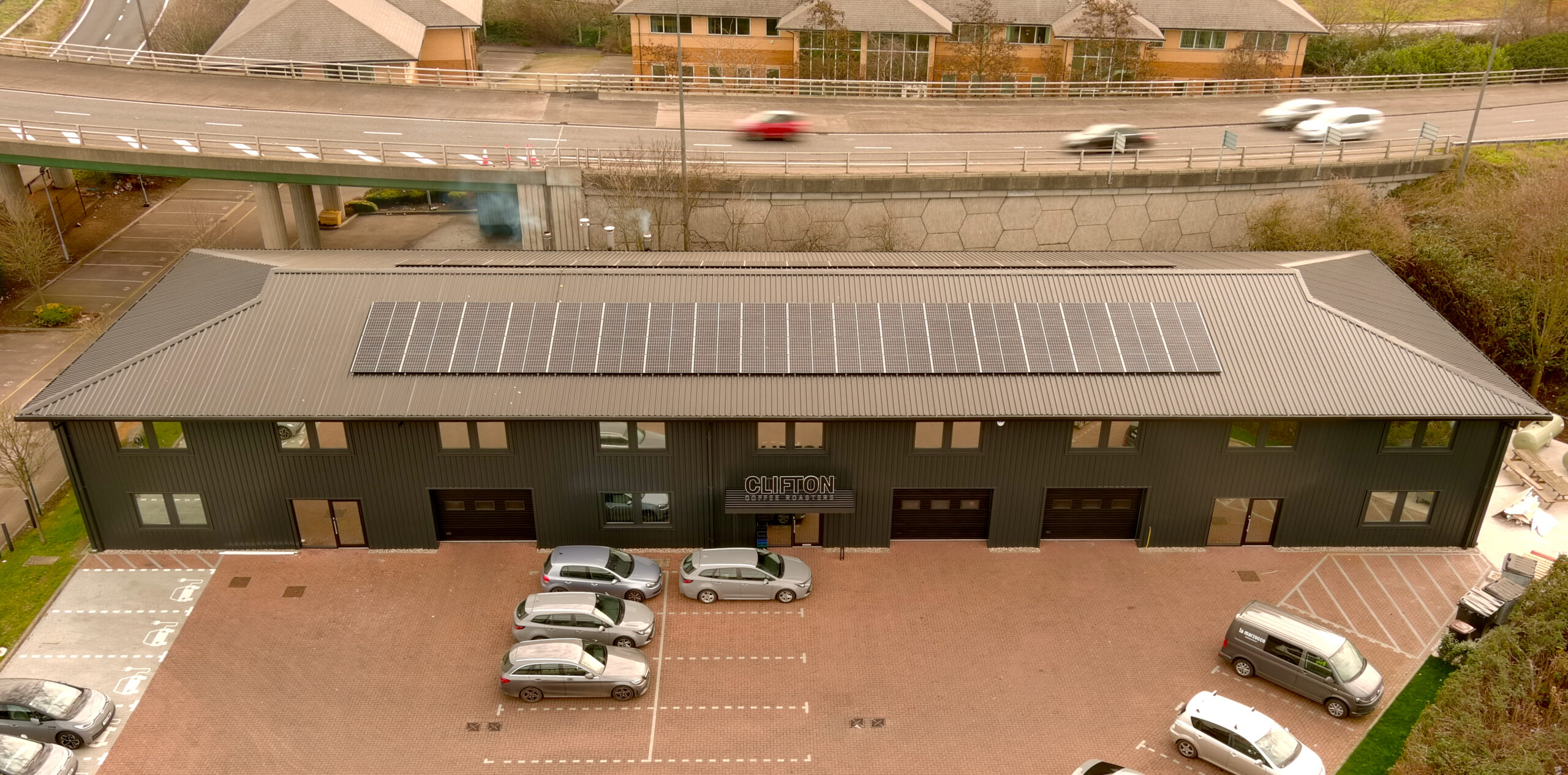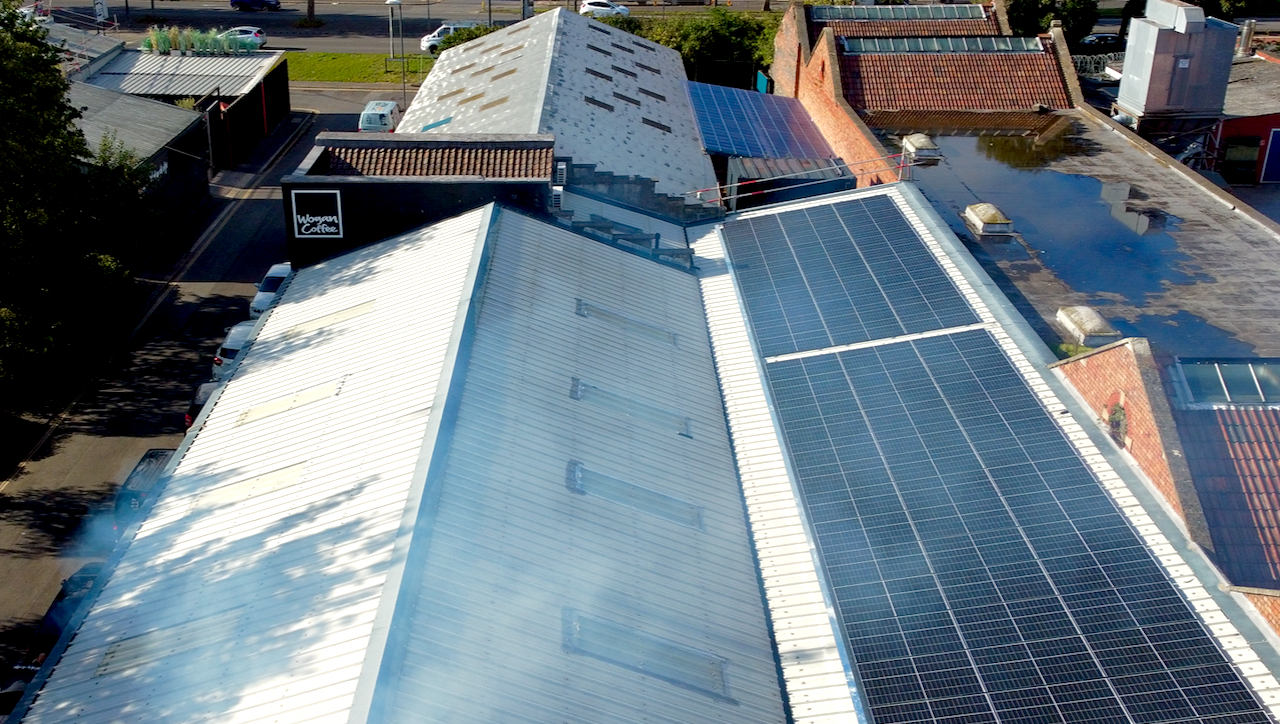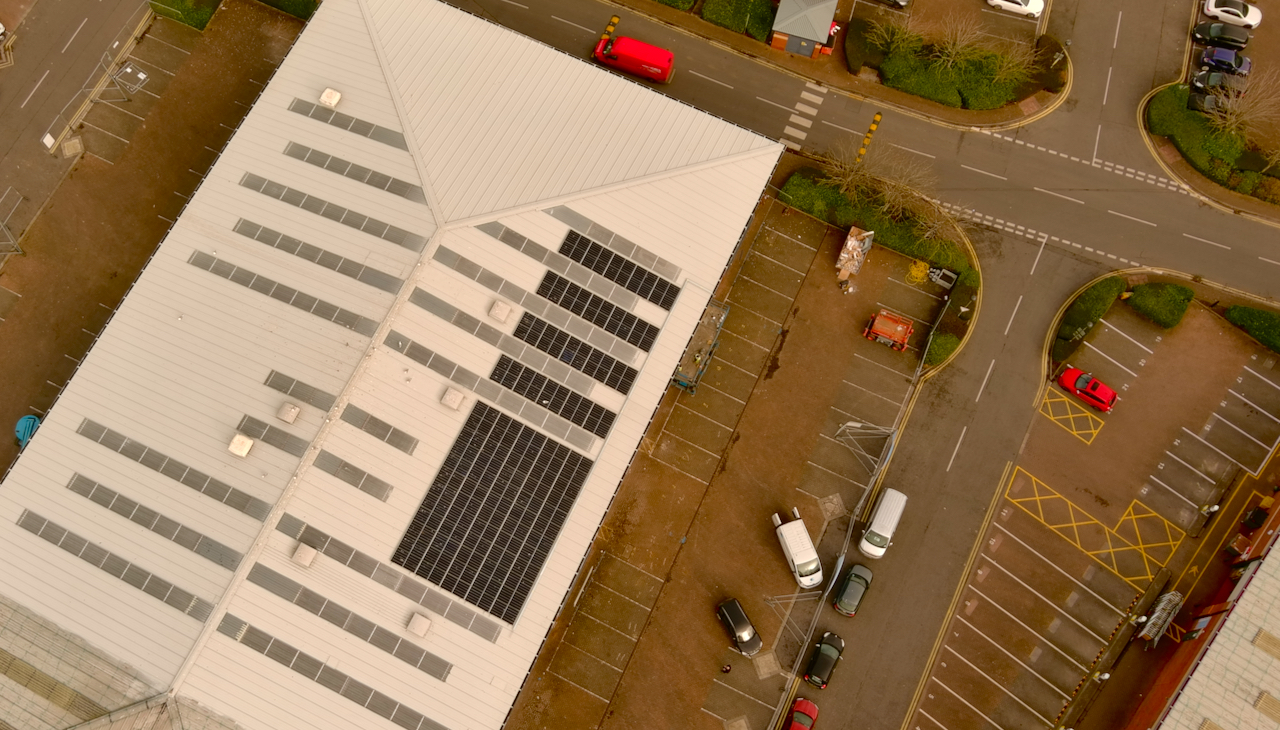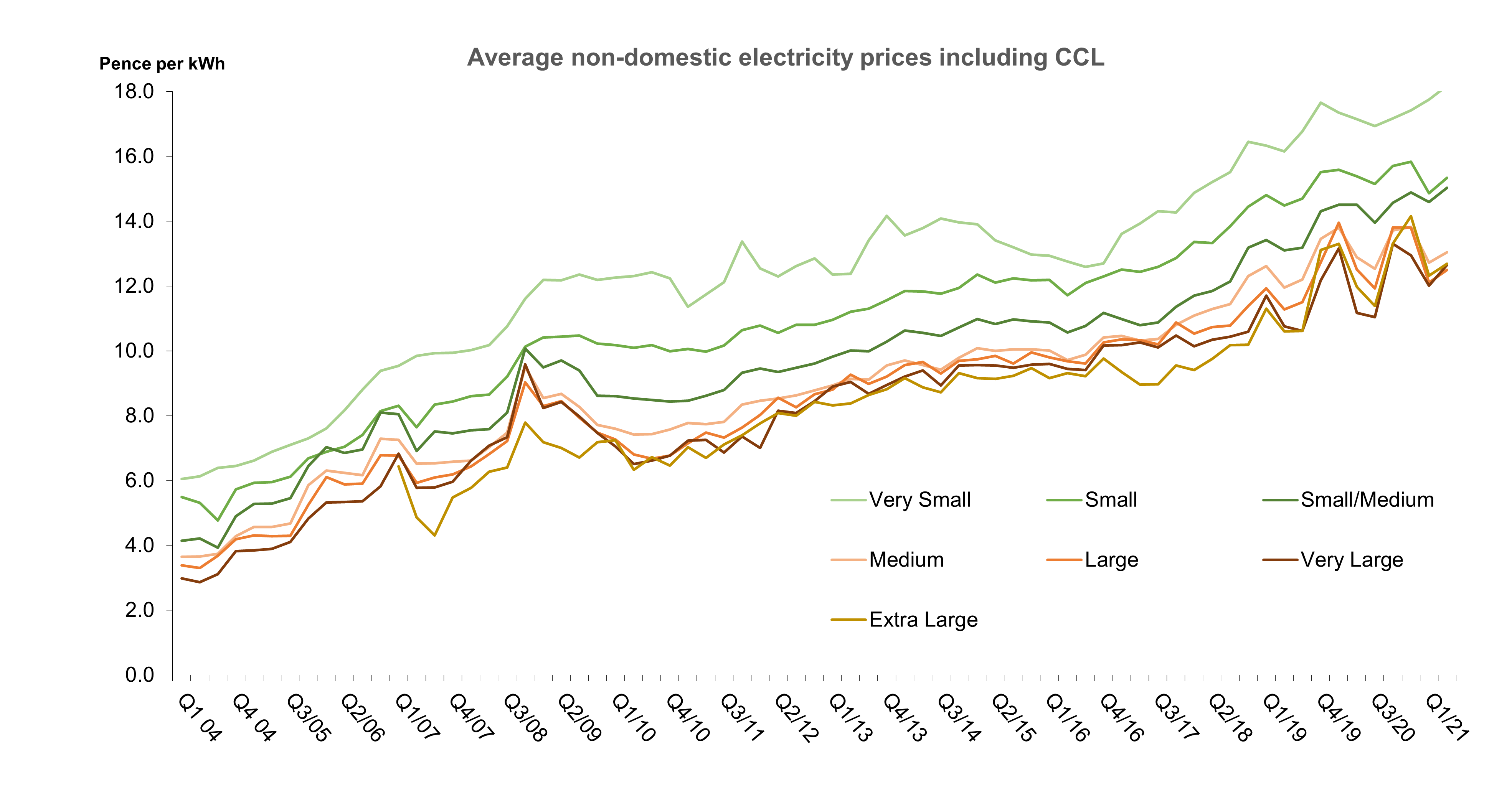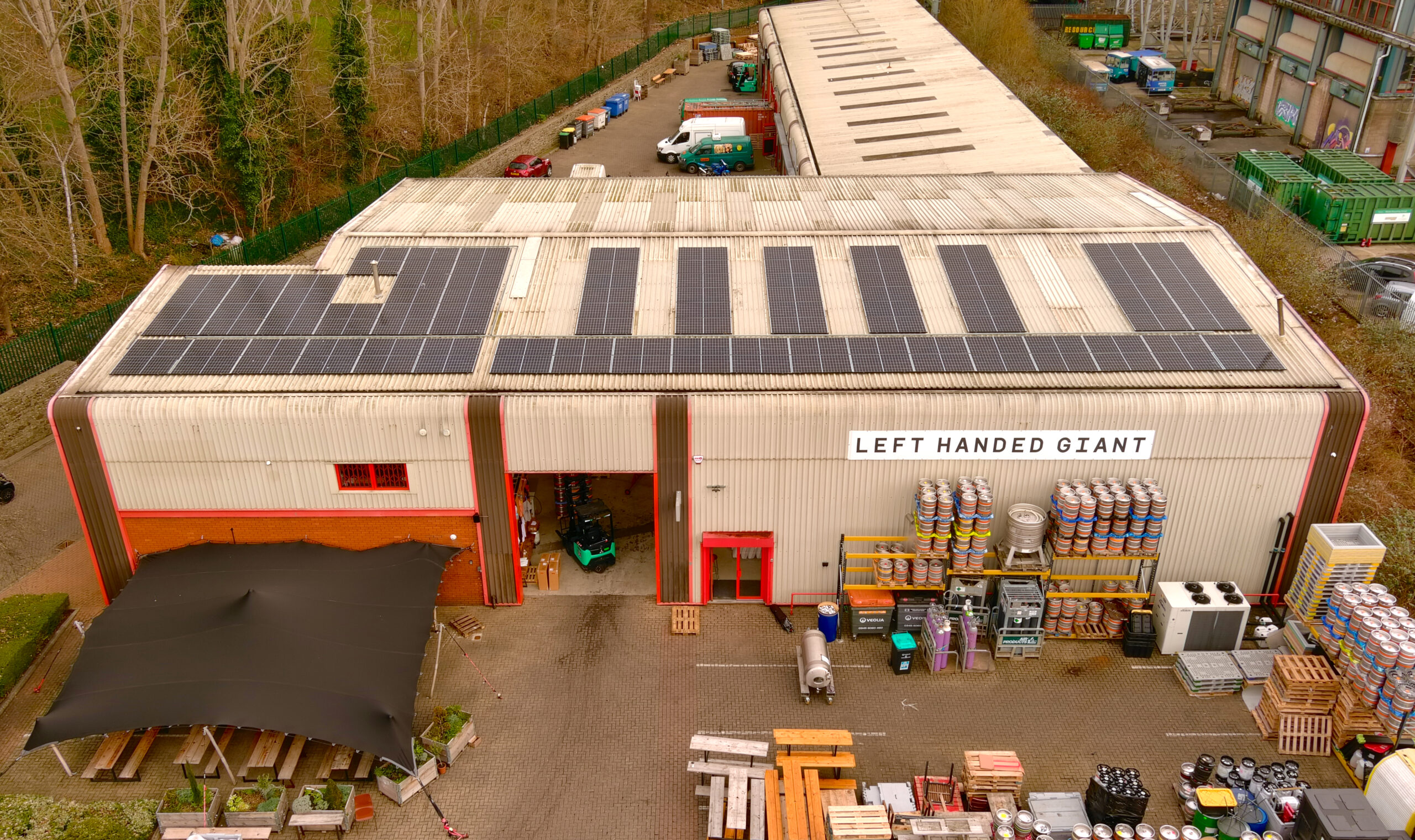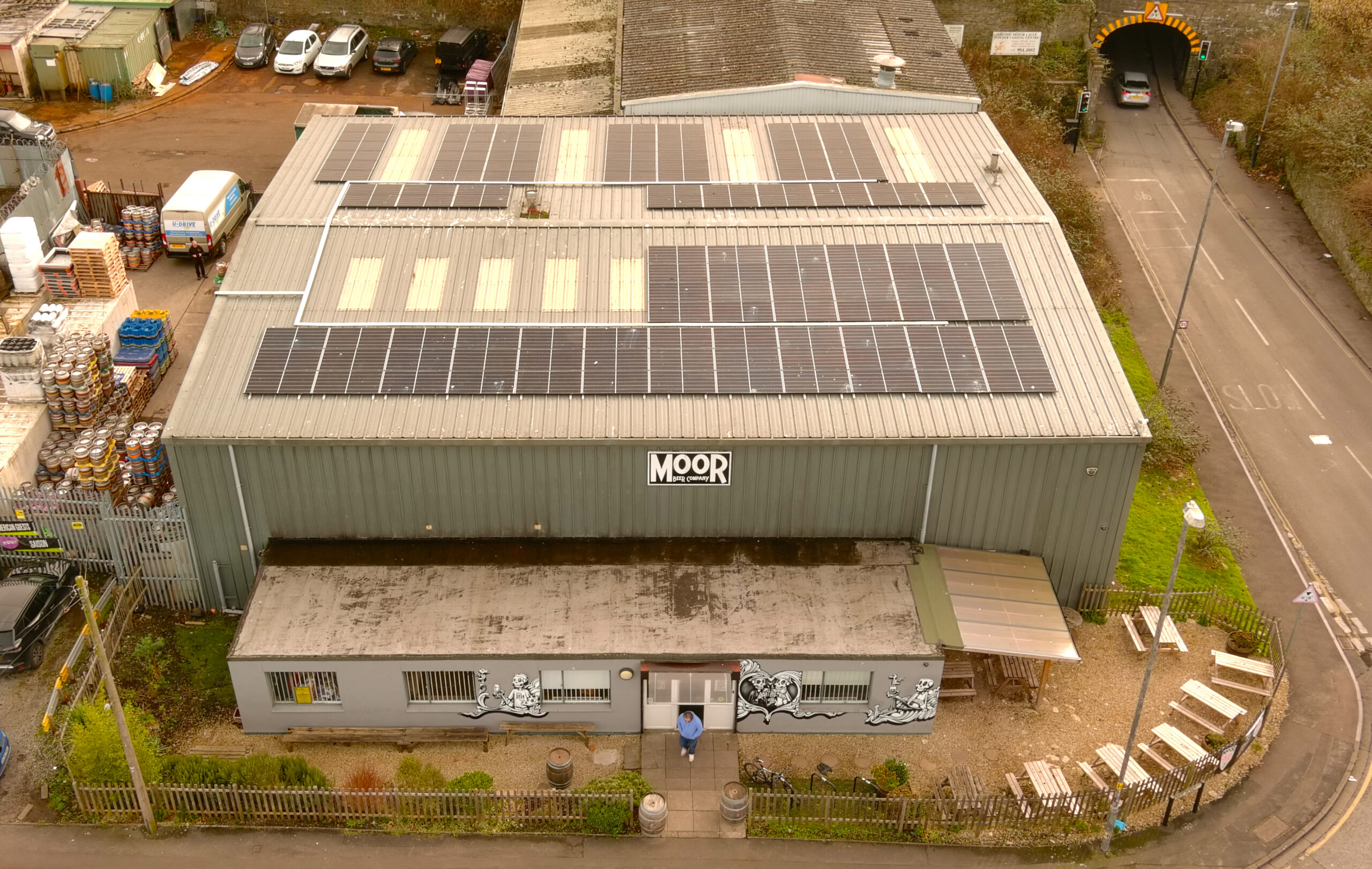CleanEarth have been on a mission recently to get Bristol’s beverage businesses generating their own renewable energy.
In the last few months, we’ve completed solar PV projects in the city for three breweries and two coffee roasting companies, and they are all now reaping the dual benefits of a smaller carbon footprint and cheaper electricity.
Double espresso
First to start generating their own power, in late 2021, was Clifton Coffee Roasters. The 36 kW rooftop system was installed over 3 days and is now supplying over a third of Clifton Coffee’s electricity needs. It will also reduce their carbon emissions by 6 tonnes per year.
Founder and Managing Director, Ed Buston, says: “Our business is founded on a naturally grown product, so it’s vital for us to minimise our impact on the planet. By investing in solar generation, we are reducing our carbon footprint and taking a big step towards being a fully sustainable organisation.”
A few miles down the road, Wogan Coffee has been a Bristol fixture since 1970. Like Clifton Coffee, they are passionate about the quality of their raw materials, and source their beans from sustainable and ethical farms around the world.
Their 43kW system includes battery storage, giving them added energy security. James Wogan, Director, explains why they went the solar route: “We’ve reduced our carbon emissions and we’re saving money. What’s not to like?”
Triple IPA
Not content with powering up the city’s caffeine shots, CleanEarth are also keen to keep Bristol’s beer flowing.
We’ve now fitted solar PV systems to three of the area’s leading craft breweries: Left-Handed Giant, Moor Beer and Wiper & True. Totalling 120 kW in generation, these three installations combined will save 600 tonnes of carbon emissions over their operational lifetimes, while saving their owners over half a million pounds.
Like the coffee roasters, these breweries take their environmental responsibilities seriously.
A sustainable new Wiper & True brewery
Wiper & True have put sustainability at the core of their new 28,000 sq ft brewery, which now sports 100 solar panels installed by CleanEarth.
Operations & Sustainability Manager Joe Watts says, “Given the climate crisis and other pressures on the environment, all businesses need to get their sustainability act together. We recycle our spent grain, use sustainable packaging, and capture the CO2 from fermentation to carbonate our beers. But we are always looking to do more.”
They are also aligned with Bristol City Council’s target of carbon neutrality by 2030 and have started the application process for B-Corp status.
Electricity costs cut by up to 80%
In parallel with cutting their carbon emissions, all five Bristol businesses are also enjoying much lower electricity bills.
Energy costs have been volatile and on a steep upward trend, and the UK’s small to medium-sized businesses are paying up to 18 pence per kilowatt hour. By generating their own power from sunshine, Bristol’s renewables trailblazers are paying as little as 3p.
Grants up to 50% of the capital investment
The commercial argument for solar is especially strong in the Bristol region thanks to the West of England Green Business Grants.
Paying 50% of the capital costs, up to a maximum of £15,000, this funding brought the payback period for these CleanEarth projects down as low as 3 years. In the words of Left-Handed Giant’s Finance Manager, Callum Bickers: “It’s a complete no-brainer. I wish all our capital investments were guaranteed to show a return that quickly!”
Not just in it for the drinks …
CleanEarth’s Commercial Manager, Ed Lennon, is in discussion with a few more of Bristol’s beer and coffee people – he’s a fan of their products, after all. But he makes the point that the business case for solar generation isn’t limited to the hot and cold beverage sector.
“We’re currently working on projects across the country for an audio equipment company, a marine geotechnical specialist and the UK’s largest manufacturer of hygienic cleaning tools,” he says. “They’ll all see returns that are similar to the Bristol guys. The numbers speak for themselves.”
As energy prices continue to rise, and the stark realities of the climate emergency become clearer, the argument for renewables is stronger than ever.
